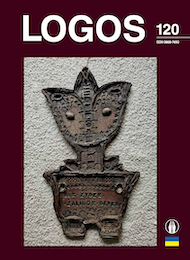The Interpretation of Vox in The First Age of Logic in Lithuania: Signification, Status and the Roles it Plays in the Proposition
The Interpretation of Vox in The First Age of Logic in Lithuania: Signification, Status and the Roles it Plays in the Proposition
Author(s): Vytis ValatkaSubject(s): Logic, Early Modern Philosophy, 16th Century
Published by: Visuomeninė organizacija »LOGOS«
Keywords: scholastic logic in Lithuania; proposition; Smiglecki; Ortiz; word; verb; noun;
Summary/Abstract: The article analyses the interpretation of a proposition as the second operation of the human intellect included in scholastic logic in Lithuania in the 16th century, which should be considered the first age of logic in Lithuania. The author of the article focuses on the explanation of the word (vox) as the common genus of the elements of the proposition, as well as on the interpretation of the elements themselves. The article concludes that the authors of scholastic logic in Lithuania in the 16th century traditionally considered a noun (nomen) and a verb (verbum) as the essential elements of a proposition. As for a word as the common genus of noun and verb, the authors entered the significant scholastic controversy between Thomism and Scotism concerning the relation between a word and a thing. Meanwhile, on the question of the status of the word, they unanimously followed the scholastic tradition, which regarded words as conventional signs attributed to things based on a certain mutual similarity.
Journal: LOGOS - A Journal of Religion, Philosophy, Comparative Cultural Studies and Art
- Issue Year: 2024
- Issue No: 120
- Page Range: 17-26
- Page Count: 10
- Language: English

